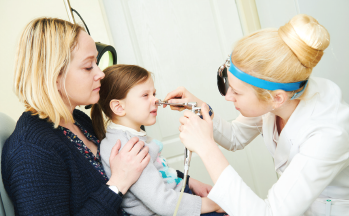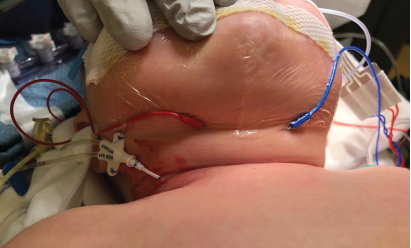The palatine tonsils and adenoids are also lymphoid tissues that may help defend against infections of the upper respiratory tract, bringing into question whether tonsillectomy or adenoidectomy might hinder immune response.
Hearing Impairment in Pediatric Population Associated with Higher Prevalence of Loneliness
Most existing studies have found that hearing impairment results in a higher prevalence of social isolation and loneliness in the pediatric population.

Pediatric Otolaryngology Experts Discussed Medical Trends, Workforce Issues
From infectious illnesses in steep decline due to COVID-19 to a new subcertification category, leaders in pediatric otolaryngology discussed trends in the field during the Combined Otolaryngology Spring Meetings.

What Is the Best Approach to Prevent Advanced-Stage Pressure Injuries After Pediatric Tracheotomy?
An array of complications may arise after a pediatric tracheotomy, and the clinician should be mindful of advanced-stage pressure injuries.

What Does a Drop in Surgeries Mean for Pediatric Otolaryngologists and Their Patients?
Pediatric otolaryngology appointments and surgical volumes have yet to return to pre-pandemic numbers.

How To: Using Modified Dragonfly Electrode for Recurrent Laryngeal Nerve Monitoring in Pediatric Surgery
An obstacle to routine utilization of intraoperative nerve monitoring in pediatric surgery is the lack of size-appropriate nerve monitoring devices for the pediatric patient.

How to Develop and Retain Diverse Talent in Pediatric Otolaryngology
A culture of mentoring can go a long way by providing guidance, improving job performance, and giving mentees the feeling of belonging.

How 3D Printing Is Transforming the Pediatric Otolaryngology Field
Although the science of 3D printing is more than 30 years old, its appication in treating infants and children with airway conditions is much newer.
Pediatric Otolaryngologic Clinical Trial Patterns Underscore Increased Representation Opportunities
Continued focus on pediatric otolaryngologic clinical trials enables improved representation of the specialty’s spectrum of disease and therapy, while increased results publication and federal funding may advance patient care.

How Otolaryngologists Can Empower Teens to Take Care of Themselves
Citing recent news headlines, like vaping-related deaths, can be one way to introduce a topic or help it sink in with teenagers.
- « Previous Page
- 1
- …
- 3
- 4
- 5
- 6
- 7
- …
- 20
- Next Page »